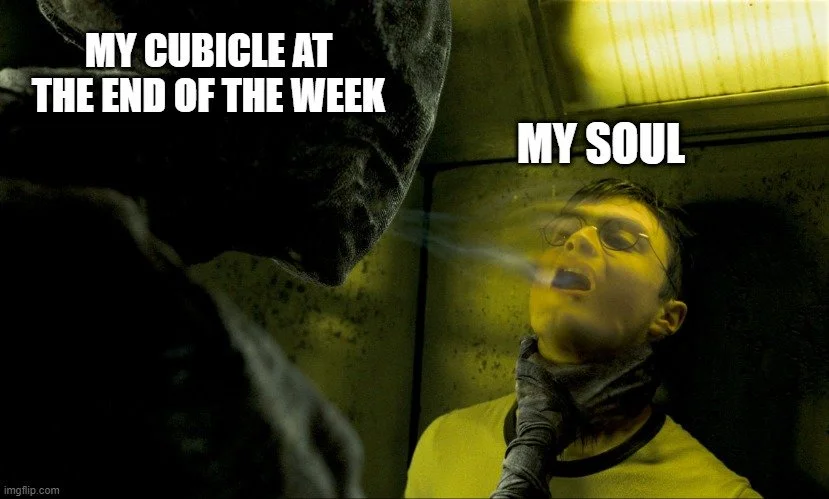Do the Costs of Speaking Up about Toxic Cultures Outweigh those of Staying Quiet?
“Ugh, I can’t,” one person said to me via text. “There is no psychological safety for me until I’m safely out… I could talk once I leave, but am not in a healthy place to do so now. I hope you understand.”
I responded that I understood the person’s decision to remain silent.
However, I continue to wonder if the costs of speaking up about toxic cultures outweigh the costs of staying quiet. By speaking up, people are not only risking the job and professional relationships they have now, but also future opportunities, as well.
In a short film entitled, “Toxic,” about bullying in the film and TV industry, anonymous testimonies describe the barriers to speaking up about bullies in the workplace. In it, 56% of the more than 2,000 people surveyed who work in the United Kingdom’s film and TV industry said they had experienced bullying at work in the last year. On top of that, 16% of those who reported those experiences said things “actually got worse as a result.”
“If management don't do anything about problems, I think at some point people stop raising their hands and naming names,” Brian Hill, the film’s director and a former Bafta-winner, said in an April 20, 2022 BBC article about this film and the prevalence of toxic cultures in the entertainment industry.
“The people who need to see it are the people who are at the top of the industry,” he adds, saying he hopes it will be “seen and taken seriously by people who've got some power.”
What happens when those messages are not received or, even worse, not taken seriously.
In a May 3, 2022 article entitled, “Ethical Dilemmas: What to Do When Employees Stay Silent,” Gallup researchers found that out of the 22% of employees who say they have personally seen or have firsthand knowledge of unethical workplace behavior, 63% of them did not report it.
Almost half (44%) of the reasons why they chose not to report the inappropriate behavior reflected either a lack of confidence in addressing the problem or a fear of negative repercussions for themselves or others who were involved.
One of the biggest influences on these perceptions is how managers model (or fail to model) positive behavior.
“Managers instill that trait with their own behavior,” Marco Nink and Jennifer Robison said in the Gallup article. “By demonstrating that which is acceptable and unacceptable, managers set the tone and an example that team members follow… “(In the survey of employees who did or did not report inappropriate behavior,) only about four in 10 employees strongly agree that their manager ‘demonstrates behavior of high integrity and ethics.’”
It may or may not be a coincidence that about the same number chose to report unethical workplace behavior as strongly agreed that their manager role modeled positive ethical behavior. By failing to address problematic behavior, bullies are rewarded and the toxic culture is reinforced, if not strengthened.
The long-term costs of such indifference or silence are even more staggering.
According to Steve Magness in his new book, “Do Hard Things,” a single leader with an abusive style not only has a negative impact on a person’s performance while the leader and that person work together, but continues to negatively influence the remainder of that person’s career.
In a study of nearly 700 NBA players, “those who played under a coach with an abusive leadership style saw a drop in performance… But the effects weren’t limited to the season with that coach. The impact stretched to the player’s entire career.”
Not only that, those players took on the coach’s abusive and aggressive tendencies, as evidenced by an increase in technical fouls throughout the rest of their careers.
Such long-term negative consequences are not limited to the world of sports. In a study of 1,000 office workers, the strongest predictor of the workers’ performance was whether or not they felt respected and valued by their managers.
The decision to speak up or to stay quiet is a personal one, without a doubt, with ramifications that can ripple throughout one’s life. However, the data is clear that the costs of silence also can continue to cause harm for everybody involved over a long period of time, too.
“A lot of people I would assume like me (are) nervous for retaliation,” one of a series of text messages from a second person sent to me, “... for me I am torn having my name out in public based on where I am at in life.”
The second person confided in a later message, “I was very afraid for my job and my mental health at work if I had spoken up… it baffles me how a person who has little respect or regard for processes and people can get away with so much.”
If there’s a positive take away from the number of people who are choosing to remain silent when facing bad bosses and toxic cultures (as evidenced by the sheer volume of research studies on the subject), it’s that we are not alone, and that’s a great place to start.



